Answer the following question.
いつ にほんごを べんきょうしますか。(Itsu nihongo o benkyou shimasu ka.)
[ ](に) べんきょうします。([ ](ni) benkyou shimasu.)
Very good!
Learn the Japanese and English languages with the Akiko Method®
Answer the following question.
いつ にほんごを べんきょうしますか。(Itsu nihongo o benkyou shimasu ka.)
[ ](に) べんきょうします。([ ](ni) benkyou shimasu.)
Very good!
Answer the following questions. You can round up or down the numbers.
なんじに おきますか。(Nan ji ni okimasu ka.)
なんじに あさごはんを たべますか。(Nan ji ni asagohan o tabemasu ka.)
[ ]じに おきます。([ ]ji ni okimasu.)
[ ]じに あさごはんを たべます。([ ]ji ni asagohan o tabemasu.)
Good job!
Answer the question. You can round up or down the number.
いま、なんじですか。(Ima, nan ji desu ka.)
[ ]じです。([ ]ji desu.)
Great!
In early spring, Japanese people can’t wait for cherry blossoms to bloom. In March, TV news starts to give cherry blossom forecasts and people make plans for hanami based on them. Hana means flower or blossom and mi means viewing. However, hanami means more than that.
When the cherry blossoms in their town bloom, people go out for hanami. There are many places for hanami: parks, gardens, river banks, temples, shrines, and castles. People enjoy picnicking under the blooming blossoms. They also enjoy parties, eating and drinking in the evening.
*Because of the covid-19, people are encouraged to refrain from having hanami parties this year.
Although I didn’t go far away for hanami (cherry blossom viewing) this spring, I found some beautiful cherry trees in my neighborhood.
When I visited the nearby shrine, the cherry blossoms were just in full bloom.
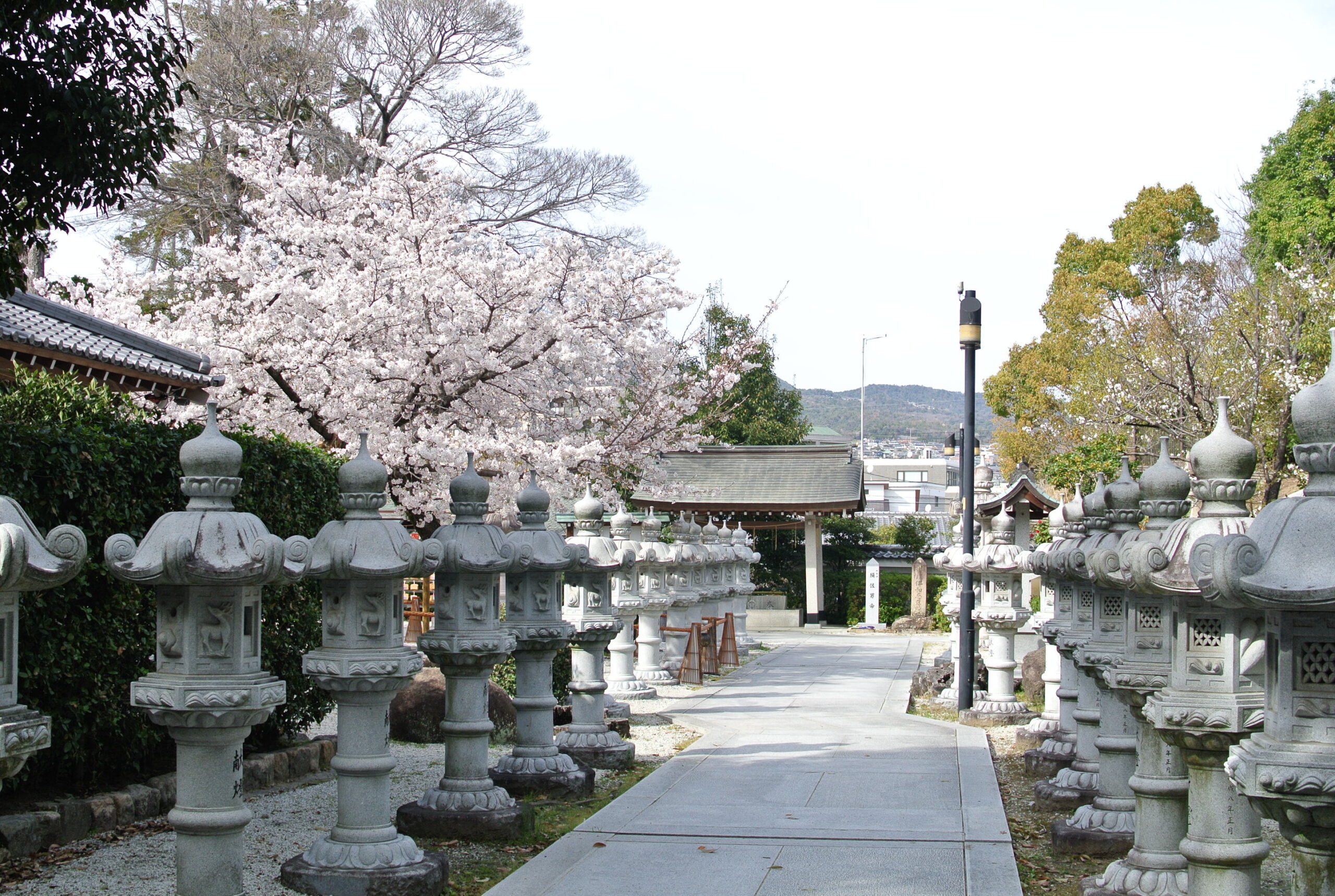
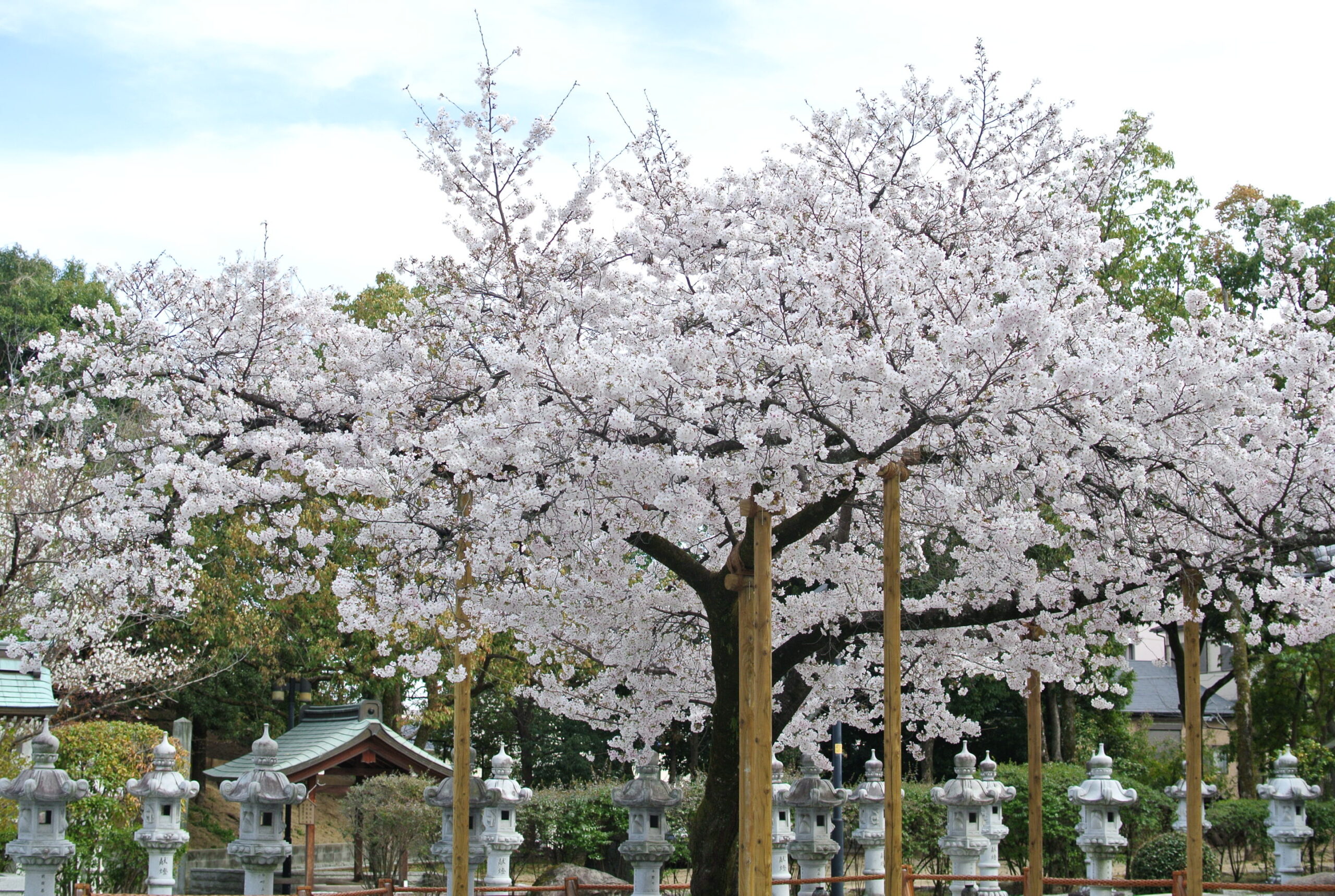
On another day, when I was walking through an alley, I saw freshly bloomed cherry blossoms, too.
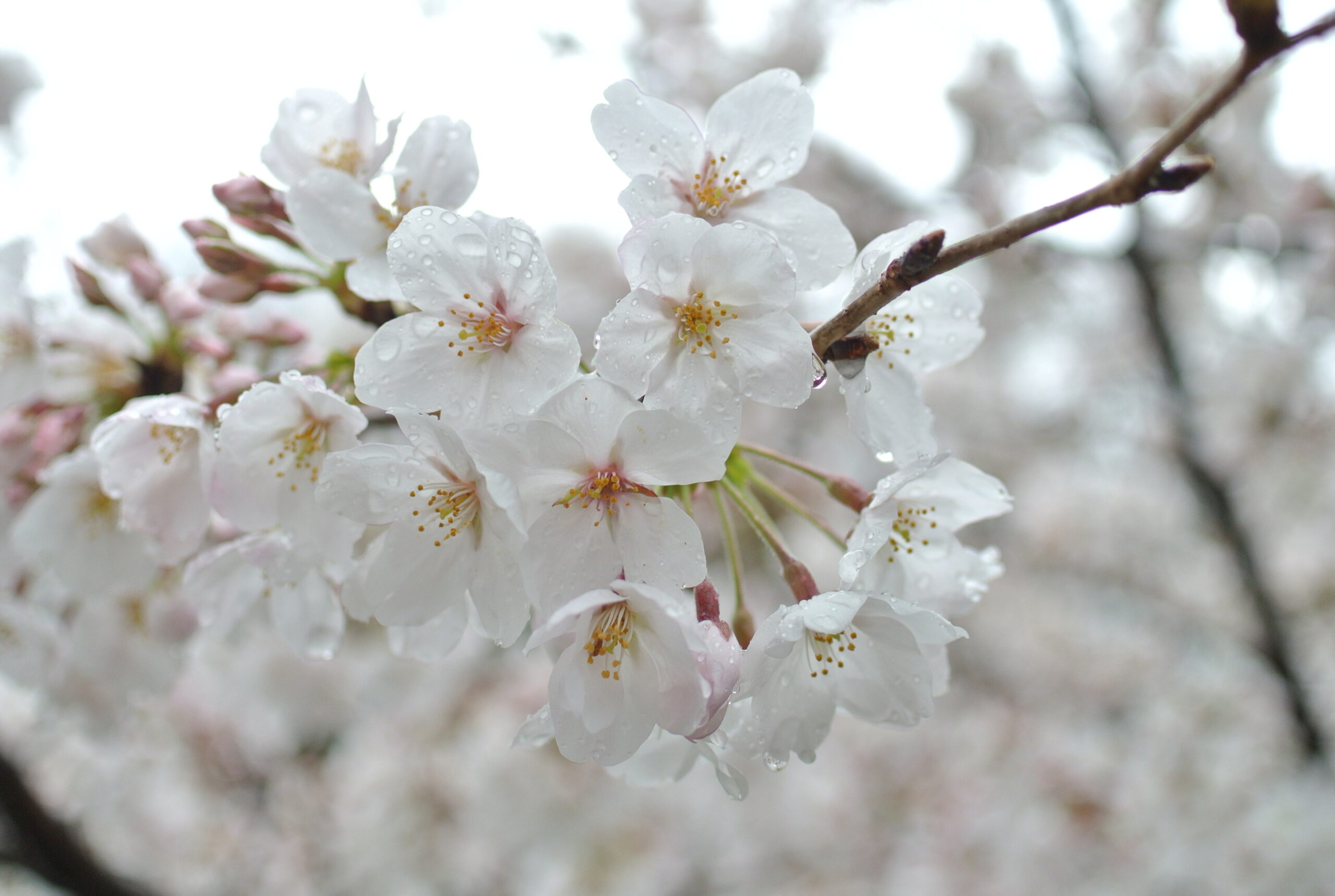
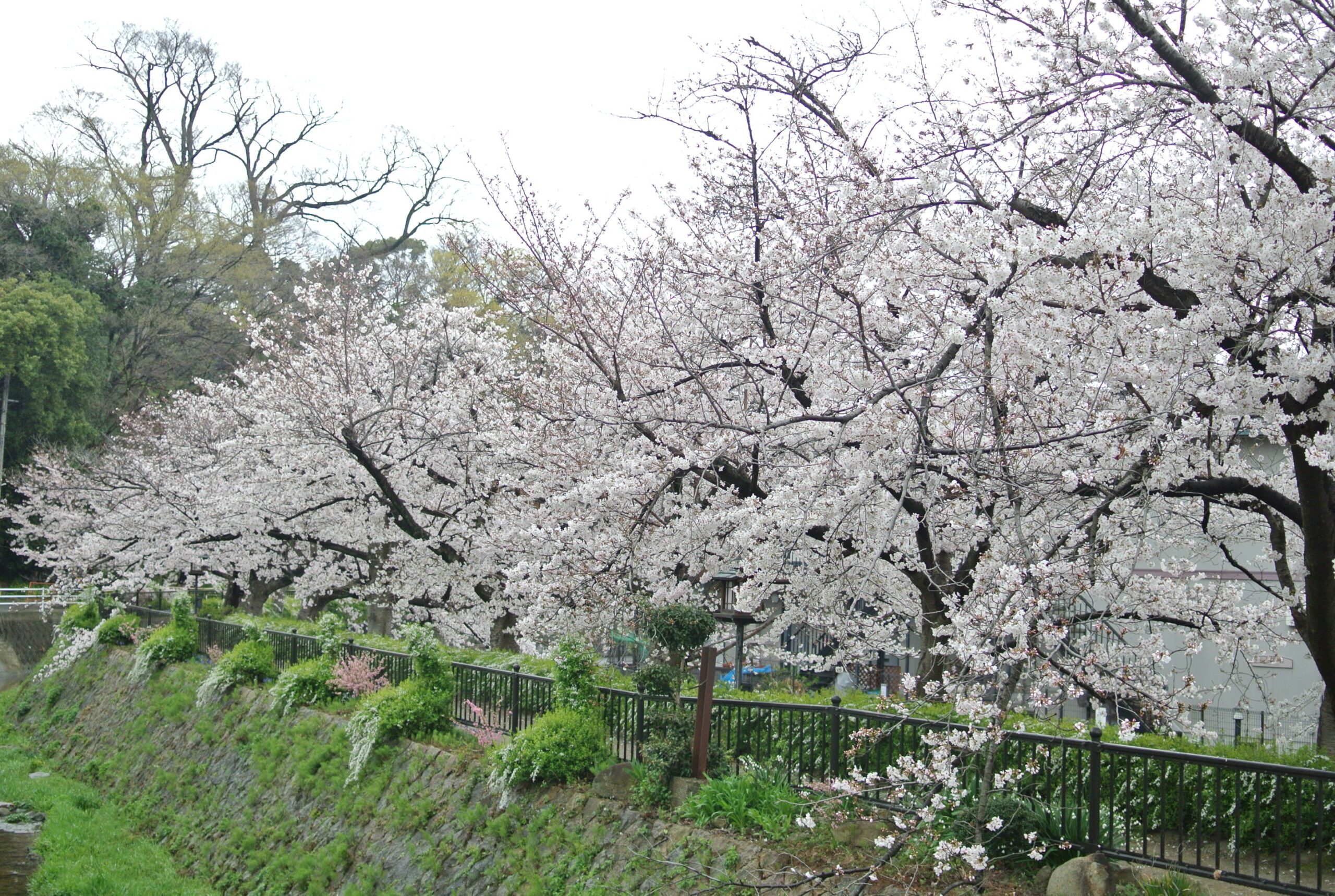
This is my favorite hanami spot.
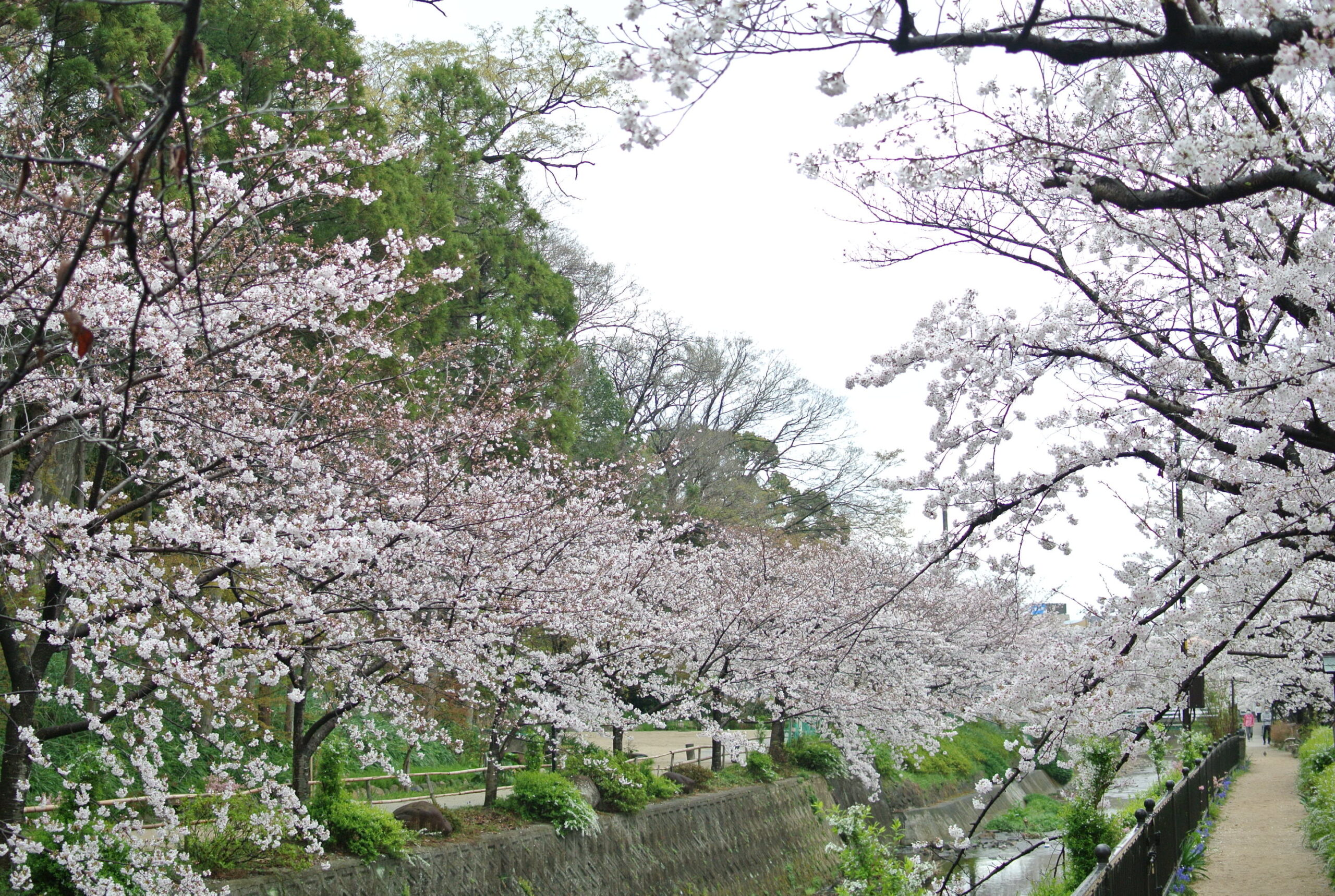
Walking under the cherry trees was just relaxing. Strolling along the brook, I appreciated the piece and quiet and the picturesque scenery.
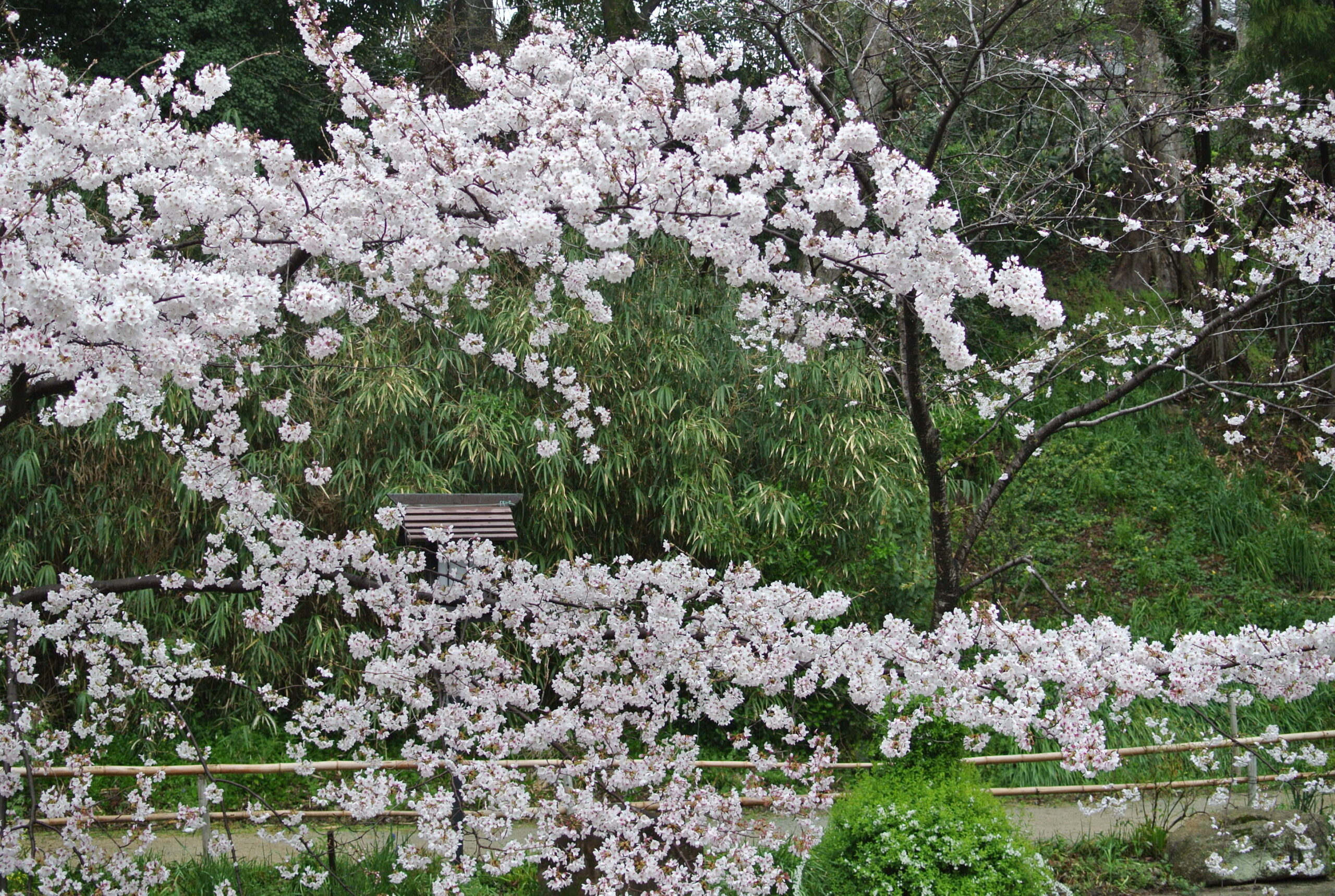
次の文を英語にしてください。
1. 私は10年前に彼女と結婚しました。
2. 私たちは結婚しています。
3. 私と結婚してくれませんか。(プロポーズの言葉)
1.は、動作動詞marryを使って、I married her 10 years ago.と言うことができます。marryは他動詞なので、前置詞は不要です。
または、get married(marriedは「結婚している」という意味の形容詞で、getは「~になる」という意味の動詞)という語句を使って、I got married to her 10 years ago.と言うこともできます。このときは前置詞のtoが必要です。
2.は、「結婚している」という状態なので、動作動詞ではなく、形容詞のmarriedを使って、We are married. と言います。
3. は、Will you marry me? と言います。そのまま覚えましょう。
もうすぐ3月も終わります。
昨年3月に自宅での授業をオンラインに切り替えてから、1年が経ちました。
受験生が7名(大学5名と高校2名)いらっしゃいましたが、全員が第一志望の学校に合格されました。
一緒に頑張った日々…。
たくさんの思い出をありがとうございました。
新しい生活が楽しみですね。
<今日の写真>近くの川沿いで撮影した桜の写真です。
Akiko’s Japanese and English Language Courses provide a wide variety of online lessons and events to meet your different needs: café-style sessions for beginners, presentation practice, interpretation training, and more. Stay tuned!
あきこの日本語・英語講座では、さまざまなニーズにお応えして、いろいろなオンラインレッスンやイベントを展開してまいります。たとえば、初心者向けの会話カフェ、プレゼン練習、日英通訳訓練など…。今後の企画をお楽しみに
最近、翻訳や書類の作業が多く、文章をたくさん書いた気になっていたのですが、気づけば久々のブログ投稿です。
この週末、久しぶりに生徒さんと再会し、たくさんおしゃべりして、とても楽しい時間を過ごしました。
また次回まで、私も楽しい報告ができるように、楽しく暮らしたいと思います。
遠く離れていても、いつも応援しています。
<今日の写真>まだ緑色が花びらに残っているフレッシュなバラ。お花屋さんで一番よく買うのがピンクのバラです。
防災の確認をしています。
非常食や水、電池など備品の入れ替えやチェックをしました。また、経験者の方のアドバイスを聞いて、安全靴やラジオも買いました。
情報を交換して、少しでも不安なことを解消していけたらいいですね。
<今日の写真>ラナンキュラスは、さらにふんわり大きくなっています。
次の文を英語にしたとき、どの文が正しいですか。
正しいものをすべて選んでください。
私は昨日、3時間勉強していました。
1. I studied for three hours yesterday.
2. I have studied for three hours yesterday.
3. I had studied for three hours yesterday.
答えは、1.の I studied for three hours yesterday.です。
現在完了形は、「今」につながる時制です。
昨日の話ですから、現在完了形は使えません。
過去の話は過去形で表現します。
過去完了形は、「過去のある時点」までに起こったことを表します。
たとえば、過去のある時点までずっと何かをしていた場合や、何かをやり終わっていた場合に使う時制です。
この文は、昨日の話であって、昨日より前の話ではないので、過去完了形にする必要はありません。
では、練習してみましょう。次の文を英語にしてください。
1. 私が帰宅したときまでに、弟は3時間勉強していました。
2. 私は(今まで)3時間勉強しました。
3. 私は若い頃、東京に3年間住んでいました。
答え
1. By the time I got home, my brother had studied for three hours.
2. I have studied for three hours.
3. I lived in Tokyo for three years when I was young.